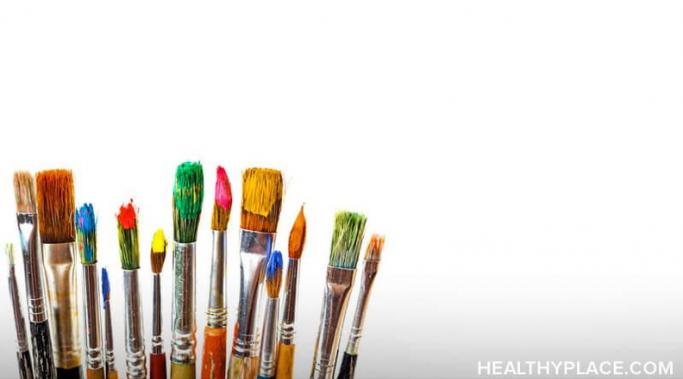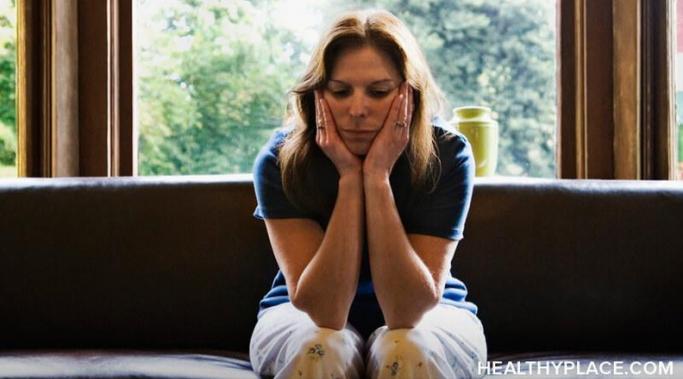I've used art to manage my mental illness. Art and tapping into creativity is an excellent source of self-therapy. When I was in intensive therapy during a difficult point of my life, I was introduced to art as therapy. I was skeptical at first, but the idea that art could help manage my mental illness and be soothing and stress-relieving opened a new door for me in my recovery.
Self-care - Recovering from Mental Illness
"I'll sleep when I'm dead" is a line my former self fully embraced before learning more about sleeping for mental health. If others didn't need sleep, I thought I didn't either. That thought process took a nasty toll on my mental health. Sleeping is essential for mental health and shouldn't be put on the back burner.
As I recovered from my mental illness, I still had an overwhelming, heavy feeling that I was behind in life. I spent so much time asking myself what I had done wrong when I really should have asked myself, "Why do I feel this way?" Comparing myself to others was a dangerous, harmful game, and at the end of the day, I was the only one keeping score in being behind in life.
Breathwork can help with anxiety. Sometimes, when it comes to managing mental health, it's best to go back to the basics, like breathing. It seems too simple, and it is simple, but that doesn't make it any less important. Breathwork is an amazing tool to refocus, calm one's mind, and work through moments of high anxiety. The best part is that it can be done anywhere at any time.
I fell into habit tracking because in a world that is constantly changing, having clearly defined action steps is comforting. I’m able to trick my mind into creating a productive routine that feels more like a game than a chore. Sticking to healthy routines has a tremendously positive impact on my mental health, and it’s never been easier to do because I found a way that I enjoy. (Who doesn’t like the feeling of being able to check off boxes?)
Career development is a priority for me, and while navigating the professional world is tricky enough, throwing in the challenges that come with managing a mental illness with a career makes the situation even more difficult. As someone who struggles with focus and drastically fluctuating energy levels, work can feel impossible, leaving me emotionally and mentally drained. The desire to succeed professionally can be much more difficult when there are extra mental obstacles, but there are ways to make the process easier. Having a mental illness and a career is possible.
Have you ever considered a mental health self-care tip and thought, "That’s not for me?" I know I have. Those kinds of tips used to make me feel even worse about myself because, gosh, how broken was I really if those didn't appeal to or work for me? The secret is that I’m not any more broken than the next person. I just had to find what works for me, even if it’s an unconventional self-care exercise. Doing that really helped me make strides in my recovery.
Recently, my therapist pointed out that even though I'm pretty good about basic self-care, like getting enough sleep and drinking water, I've been neglecting my emotional self-care. As soon as she said something, I knew she was right. I'd been avoiding my emotions by refusing to engage in anything that might make me emotional, like journaling, sad movies, or even listening to music. So I decided it was time to revamp my emotional self-care with these three basic changes.
Making time for self-care is necessary, although it has never been at the top of my list of priorities. I'm a wife and mom, I run my own small business, and I'm often so consumed by things like potty training or launching a new product that taking time for self-care sounds ridiculous. Why would I take the time to do my skincare routine at night when I could get an extra three minutes of sleep? Why would I exercise for half an hour when I could be using that time to catch up on emails? For a long time, self-care has lived at the bottom of my to-do list, constantly shuffled around and ignored.
At the beginning of 2021, I started a new form of self-care: using tarot cards for recovery. Specifically, I am learning how to read tarot cards to help me heal from the effects of childhood trauma. I don't necessarily believe that tarot cards can tell the future, but I do believe that interpreting tarot cards requires a strong sense of intuition, and that's what I hope to build by using tarot cards for recovery.








